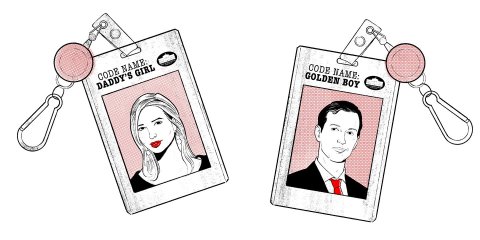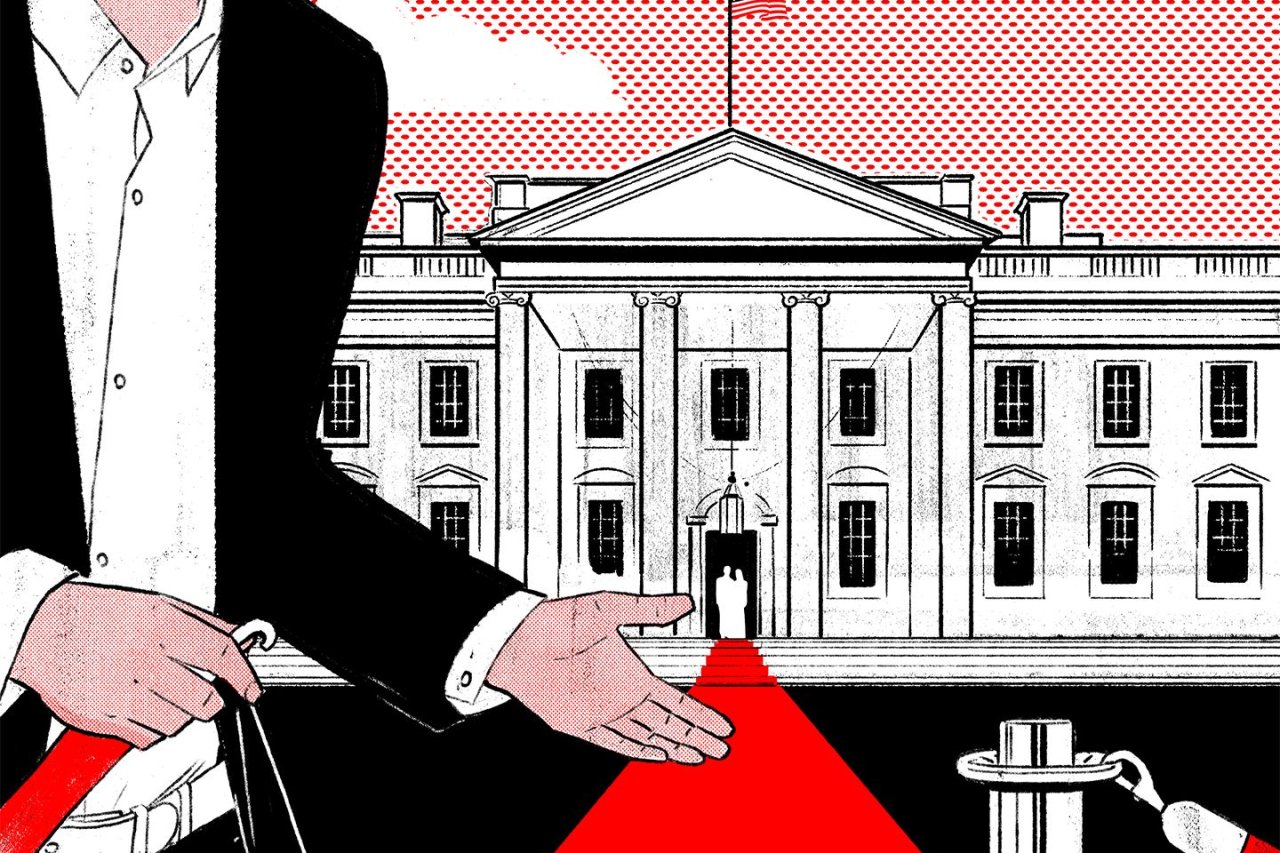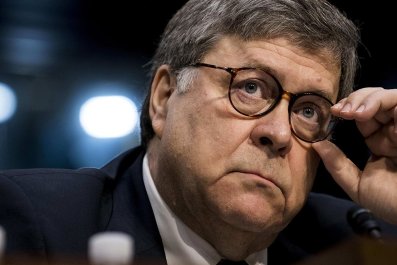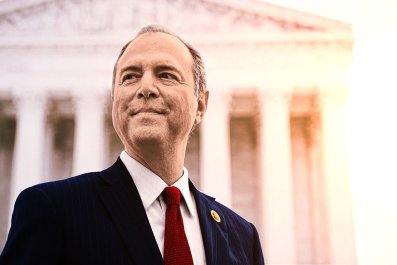When Donald Trump and his advisers arrived at the White House for their first real day of work on January 21, 2017, they inherited over 1,800 civil service employees who have more-or-less permanent jobs in the sprawling executive office of the presidency. One of them was Tricia Newbold, who over the past 16 years had risen from an entry-level job answering phones to a manager of security clearances.
Under Trump's three predecessors, things had gone smoothly.
No senior official in memory had been denied a clearance or removed because of a security problem. Then she met her new boss, Carl Kline, a veteran Air Force security expert recruited to the White House by a Trump aide.
Newbold, who had long ignored partisan concerns or personal relationships in her adjudication of security clearances, had begun flagging serious security vulnerabilities unearthed in the FBI's background investigations of more than two dozen Trump appointees, including the president's daughter Ivanka Trump and her husband, Jared Kushner. The red flags included "foreign influence, conflicts of interest, concerning personal conduct, financial problems, drug use and criminal conduct," she would later tell congressional investigators.
Normally, such concerns would be grounds for dismissing an appointee. But Kline didn't want to hear any of it, she told the House Government Oversight Committee privately in March. Instead, he ignored her concerns and warned her away from Ivanka's file, and when she pressed other White House officials to act, he retaliated.
Newbold, who was born with a rare form of congenital dwarfism, said Kline began placing dossiers and paperwork she needed on high shelves or filing cabinets beyond her reach. To her, that maneuver, coupled with Kline overriding her security warnings, not only threatened national security but assaulted her self-esteem, hard-earned through three excruciating, months-long series of surgeries in her teens that had stretched her tiny body from 3-foot-5 to 4-foot-2 and given her access to the workforce. Her new physique allowed her to completely shed her sense of herself as disabled, she says. Then came Kline.
"That was the first time I ever felt disabled," she tells Newsweek in a wide-ranging interview in early April. "It was really hard for me to accept who I was. I'd never accepted I was little, I never identified with being little, and here it was." At work she remained strong, but at home at night her composure would crack. Until last year, she says, her children "didn't even know what the word dwarf meant." But by late last year, she says, her 11-year-old daughter "had to dry my tears more than any child should ever have to do that for their parent."
Finally, in November, she filed a complaint against Kline with the Equal Employment Opportunity Commission, charging him with discriminating against her because of her height. In January, she was suspended without pay for 14 days, accused of failing to carry out his orders, but she suspected it was retaliation for the EEOC complaint. In March, fed up and alarmed by so many apparent security risks getting top-secret clearances, she went to the House Committee on Oversight and Reform. They heard her out, and on April 1 issued a 10-page summary of her powerful, detailed allegations.
Days later, Kline was subpoenaed to testify before the panel. His attorney, Robert Driscoll, who says Kline will comply, called Newbold's harassment allegations "unusual," adding only that, "just having met Carl, I'll leave it at that."
But the panel, now under the control of Democrats, is not going to leave it. Kline's testimony will likely pump jet fuel into the committee's widening probe of conflicts of interests among Trump's advisers, and not just current officials but the president's business associates and Washington lobbyists who served on the transition teams at sensitive agencies. The unforced error has pulled back the curtain on a notoriously loyalty-obsessed and transparency-averse administration.
Newbold never welcomed this fight. She had already endured plenty.
She grew up in far northeastern Maine amid the hardscrabble potato farms and declining paper mills along the Saint John River dividing Aroostook County from Canada, where the snow comes early and stays late. "Employers joke that these kids know what hard work is after picking potatoes in the fields," says Gisele Dionne, one of her former high school teachers at Madawaska High School.
Newbold couldn't manage that. Instead, she struggled through school, nurtured by loving teachers and parents. No one "ever thought of her as not being able to do the same as everybody else," Dionne says. Her mother clerked at the local Zayre store. Until her father fell ill recently, he toiled in the paper mill and worked on cars on the side.
Unlike many parents of children born with extreme congenital dwarfism, hers decided against immediate pediatric surgery. They wanted her to make that decision, she says, no matter that it would be more challenging as a teen.
"Being a parent now, I completely understand it," she says. "We forget that our children are going to have to be independent one day, so that's why they wanted me to make that kind of decision on my own."
But that's when "I found my voice," she says. "When I first went into the hospital, I would never speak up. But I learned from others that you have to be the person who is going to advocate for yourself.
"And that's," she says, "kind of how I live my life."
By the time she was 22, she had gone through multiple surgical procedures, in which doctors broke and reset her legs and arms with steel extensions. And she succeeded beyond her dreams, and not just from rising from an entry-level receptionist job in the Bill Clinton White House to a senior arbiter of security clearances when Trump moved in over 16 years later. Along the way, she had married a 6-foot-tall Bahamian man and given birth to two children.
But her time working for Kline, she says, tested her resolve. Nobody else in the security offices, headquartered across from the White House in Lafayette Square, spoke up for her, she says. "Not one of them ever came and helped. Not one. These are people that I had worked with for years. I can't even speak to why they failed to act the way the law, and I guess humanity, would expect them to act. That's painful, you know?"
She had appealed to several, more senior people in the White House to take action on her security concerns, she says, to no avail.
"Fear is a very powerful force," Newbold says. "I think they fear the retaliation. They fear losing their jobs, they fear not being able to find another job, and those are my fears as well." Her husband is a stay-at-home dad now, helping out with the kids and, recently, her father's move down from Maine for treatment at the local Veterans Affairs hospital for throat cancer.
Lest one think she's overwrought, or even paranoid, others who worked with Newbold in the Obama White House rushed to her defense. "I can attest that she is a serious security professional—a total straight shooter," former associate counsel Daniel Jacobson tweeted. "The fact that she felt compelled to come forward like this, at risk of losing her job, speaks volumes to how bad it must be (and is incredibly brave)."
Another former Obama White House lawyer, who asked not to be named, tells Newsweek , "Nobody ever had reason to ask, 'What do you think of Tricia?'" Then again, the source adds, "I don't recall the appointment or nomination of someone who had to subsequently resign because he or she didn't get the clearance required to do the job."
According to the committee's April 1 summary of Newbold's interview, Kline had "failed to address all of the disqualifying concerns" about high-level presidential appointees, as well as employees and contractors, in the sprawling Executive Office of the President. Kushner's fitness for office was questionable because of "foreign influence, outside activities and personal conduct," she told the panel.
According to the committee's letter, as well as reports over the winter by NBC and The New York Times, Newbold's concerns about Kushner and his wife were overruled by senior officials, including Trump himself. The White House Security Office has also suspended first-line-of-defense credit checks on applicants, designed to screen out provisional employees who "could be susceptible to blackmail, depending on their debts," Newbold told the panel.
When she raised security concerns about Ivanka, who has foreign business interests, Kline instructed her to "not touch" that application, she told the committee. She was preparing to recommend a clearance denial to another applicant, whom the committee identified only as "Senior White House Official 3," when Kline "called me in his office and asked me to change the recommendation," she told the panel. "I said I absolutely would not." Although that person is "no longer at the White House," she said, Kline spoke to the person "on a daily basis."
"From what I know," Newbold says of Kushner and Ivanka, "they did not ask for special treatment. I thought Mr. Kline was acting on his own accord and not on behalf of the administration, but I guess that's for future lawmakers to determine." Kline returned to what his attorney called a better Pentagon job reviewing security clearances in January. He is set to testify before the House Oversight Committee on April 23.
Newbold is relieved that he's gone, but she fears for her future. Her return to work on April 8, she says, was "extremely uncomfortable, because I know they are looking for ways to get rid of me.
"But," she adds, "I still show up every day with a smile."















